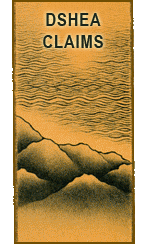DSHEA Tutorial: Claims Defined

One of the most difficult parts of DSHEA to comprehend is the difference between all of the claims that are made, what we can say, what we can’t say, when the disclaimer is required, and so forth.
The first thing that we need to do is understand the difference between the different “claims”.
Health Claims (aka Disease Claims)
Qualified Health Claims
Nutrient Content Claims
Structure/Function Claims
Health claim (also known as “disease claim”): this is a statement that a particular supplement will have a direct effect on a disease. What’s a disease? Anything that needs to be fixed is a disease. We’ll better define “disease” later on in this series. So, if your materials say that Shen Ling Bai Zhu San treats, cures, mitigates, or otherwise improves one’s diarrhea, that is a health or disease claim and guess what? Only drugs can do that! Drugs, and a few vitamins and minerals that have gone through rigorous scientific examination. Examples of dietary supplement health claims that can be made include “calcium to treat osteoporosis” and such. Since this law was passed in 1994, there have been only twelve approved health claims! So don’t hold your breath on Shen Ling Bai Zhu San being approved for diarrhea anytime soon.
Now disease claims do not require explicit statements to be made. There are plenty of opportunities to suggest these disease claims such as the name of the product. If I wanted to make the formula name “Shen Ling Bai Zhu San” easier for a consumer to remember, I might isotretinoinonlinebuy.com chose a name like “diarrhea begone” in which case I am making an implied disease claim.
We’ll go into more depth on where that thin line is between disease claim and the structure/function claims which are allowed under DSHEA.
The health claims’ first cousin is called the Qualified Health Claim. Basically these are claims such as the twelve approved health claims mentioned above but the research that has been evaluated hasn’t yet risen to the quality or quantity that the FDA wants before a health (disease) claim can be made. Here’s a page with the current “qualified health claims” and some suggestions for the appropriate labeling disclaimer.
None of the disease (health) claims or qualified health claims allowed by the FDA include Chinese herbal medicines. So, if you want to save time, just keep reading…
Nutrient content claims: These are claims that a given food product or supplement is high in this vitamin or that mineral. Again, these don’t really apply to Chinese herbal medicines. I suppose if someone wanted to jump through some expensive hoops, we could start to suggest that any formula with our herbs that are made of shell or bone could be promoted as “high in calcium”. Maybe. For now, these nutrient content claims really don’t apply. Examples of other nutrient content claims include “low fat”, “low cholesterol”, etc.
Next: Structure / Function claims: This is the category that traditional Chinese herbal supplements are primarily concerned with and so it gets its own page, so keep reading…
 Last modified: August 22, 2009
Last modified: August 22, 2009  Tags: Claims, DSHEA В· Posted in: Claims
Tags: Claims, DSHEA В· Posted in: Claims
